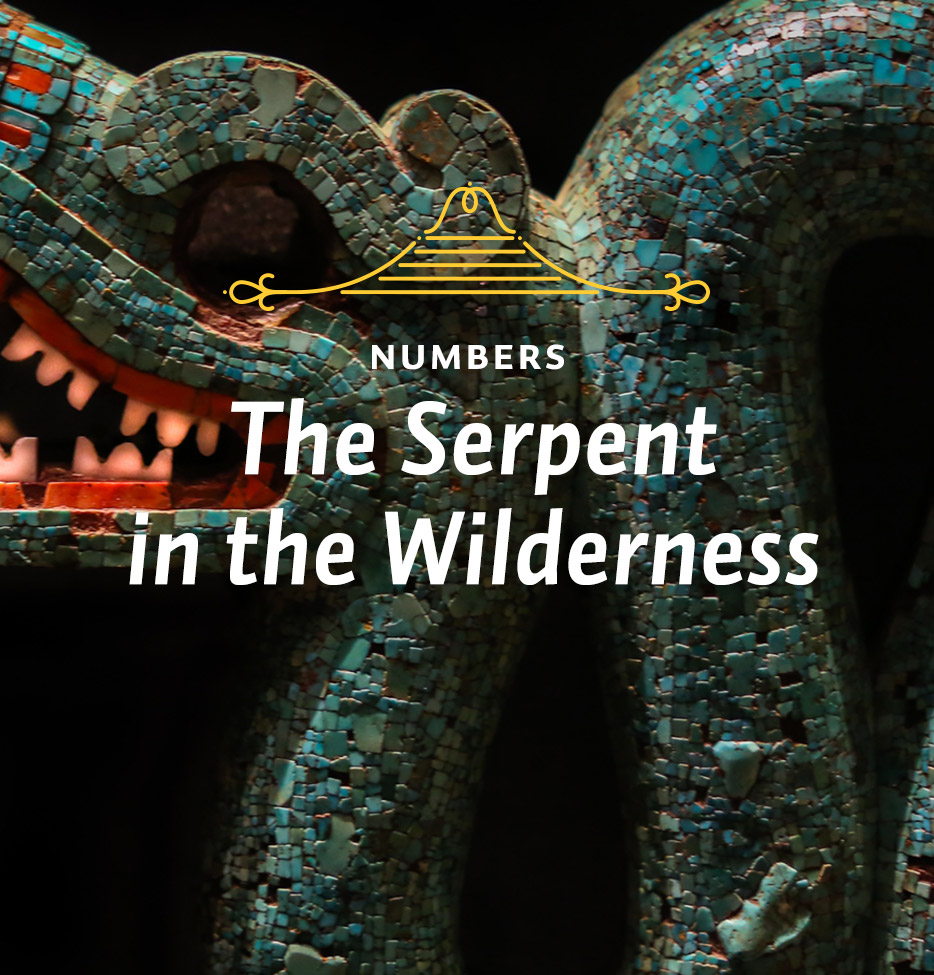In yesterday’s devotional, we concluded by noting that although the crucifixion was foolish and revolting to the world, yet it’s the very power of God unto salvation.
Paul recognized the difficulty when he wrote to the Corinthians, “For the message of the cross is foolishness to those who are perishing” (1 Cor. 1:18a). The cross was seen as an offense to some, but he knew that Christ crucified is still the power and the wisdom of God, which is what the story in Numbers 21 illustrates.
Donald Grey Barnhouse did a good study of this in which he imagined all the ways the people might have gone about to attempt to cure themselves. The things that we might imagine them doing are parallel to the things people do today in the matter of salvation. They don’t want to trust Christ, which they regard as absurd or unattractive. They want to do something to help themselves. So Barnhouse imagined a number of things that they could have done, and what this story teaches.1
The first thing it teaches is that there is no human remedy for sin. When people today are faced with a problem, it generally makes us feel good if we can try to do something about it. Well it would have been quite natural for the people to say that they should make some medicines that might help us to recover from the snake bites. Barnhouse says that brewing potions or making salves would have satisfied every natural instinct of the heart to work out its own cure. But there was nothing of that kind mentioned. They were to cease from human remedies and turn to a divine remedy.
Today it is exactly the same, you see. If you preach a religion that says you have to do certain things to get right with God, that flatters the human mind and heart. That’s exactly what we want to hear. We say, “We will tackle anything. Point out the mountain and we will climb it. Point out the river and we will cross it. Whatever it is, we will do it.” We feel good about that. But when you are talking about sin, no human cure is adequate, just like no human cure would have helped them from these deadly snakebites.
The second point is that salvation cannot come about by any amount of self-reformation. The people who had been bitten by the snakes might have thought that they had gotten into a bad area of the desert. They made a mistake and were going to mark that on their charts so they would know not to come into this area again. They learned from their experience how to avoid the snakes in the future. But that wouldn’t have helped the people who had already been bitten by the snakes. It’s the same way with people today. We talk about spiritual things and we say “Well, you know, we just have to avoid those problems and not do it again.” However, the problem of sin is within us, and so it has to be dealt with at a deeper level.
The third point is that it is useless to fight sin by our natural human efforts. Barnhouse humorously says that if the incident had been dealt with after the fashion of our day, there would have been a rush to incorporate the Society for the Extermination of the Fiery Serpents, known as SEFS. And there would have been badges for the coat lapels, cards for the district workers, secretaries for the organization branches, pledge cards, mass rallies, and a publication office starting out a weekly journal to tell of the progress of the work. There would have been heaps of serpents that had been killed by the faithful workers. But of course, all of that wouldn’t have solved the problem.
That’s not to say that there is something wrong with social work. Social work is a good thing, and Christians generally have led the way in it. But it doesn’t cure sin. Social work tries to mop up the effects of sin. We ought to do it and help people as best we can, but the problem is deeper than that. That’s why government programs don’t solve the problem. You pour more and more money into the problems of the day, and you don’t really solve the problems. You may patch up some of the effects of the sin problem, but you don’t solve the deeper problem of sin.
A fourth point Barnhouse makes is that salvation is not earned by prayer. The people who were bitten by serpents weren’t told to pray to the serpent on the pole. All they were supposed to do was look at it. I am not saying that prayer is bad. We are told to pray, but praying for salvation doesn’t save. Salvation isn’t something that you receive by prayer, it’s something you receive by faith. When we think of somehow getting salvation by prayer, it quickly becomes a work again, something that we are able to do. If we pray enough, maybe God will save us. However, the way of salvation is given in Christ. You don’t have to ask for it; you have to believe it and receive it.
1See Donald Grey Barnhouse, Romans, vol. 3, God’s Remedy (Wheaton, IL: Van Kampen, 1954), 219-21.






